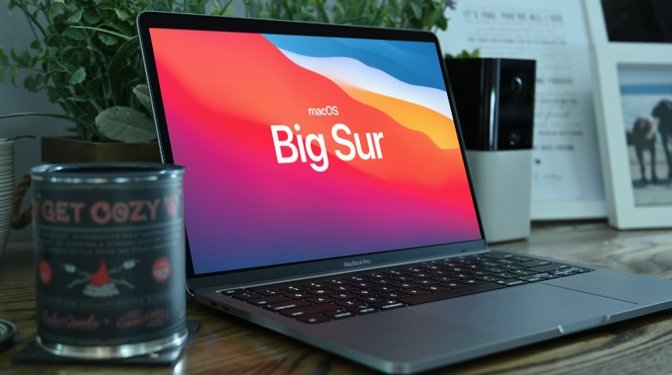WebKit code leaks Apple's next OS names as macOS 12, iOS 15
WebKit source code has seemingly confirmed Apple is all in with the change in macOS numbering, by including references to "macOS 12.0" and "iOS 15.0."

For quite a few years, macOS had a version number that started "10." followed by incremental changes. For macOS Big Sur and its Apple Silicon introduction, Apple moved macOS to version 11, and it seems the numbering convention will continue for the next version.
Located in the open-source WebKit repository after being updated in February, references in the code found by 9to5Mac mention macOS "12.00" and iOS "15.0." This is an unusual discovery, as typically the WebKit code refers to future operating system iterations as "TBA" instead of using version numbers.
The update was conducted by an Apple employee who worked on WebKit, with the commit message "Update WKWebView getUserMedia delegate to latest proposal."
Based on this discovery, it seems that Apple is taking the same numbering route for macOS as it has done for its other operating systems, instead of keeping it on the same main version for as long as possible. The numbering of beta releases and public releases hinted that this could occur, since the first number after the period is increasing multiple times in the year instead of being static.
It ultimately seems like a confirmation that Apple is changing the numbering strategy to bring macOS in line with iOS, iPadOS, and others. Each have a main yearly milestone release that changes the first number of the version string.
Apple is anticipated to reveal the official name and numbers of its next milestone operating system releases at WWDC 2021, due to be held in the summer. Apple is expected to announce when the event will take place soon, as well as other details developers could expect to encounter this year.

For quite a few years, macOS had a version number that started "10." followed by incremental changes. For macOS Big Sur and its Apple Silicon introduction, Apple moved macOS to version 11, and it seems the numbering convention will continue for the next version.
Located in the open-source WebKit repository after being updated in February, references in the code found by 9to5Mac mention macOS "12.00" and iOS "15.0." This is an unusual discovery, as typically the WebKit code refers to future operating system iterations as "TBA" instead of using version numbers.
The update was conducted by an Apple employee who worked on WebKit, with the commit message "Update WKWebView getUserMedia delegate to latest proposal."
Based on this discovery, it seems that Apple is taking the same numbering route for macOS as it has done for its other operating systems, instead of keeping it on the same main version for as long as possible. The numbering of beta releases and public releases hinted that this could occur, since the first number after the period is increasing multiple times in the year instead of being static.
It ultimately seems like a confirmation that Apple is changing the numbering strategy to bring macOS in line with iOS, iPadOS, and others. Each have a main yearly milestone release that changes the first number of the version string.
Apple is anticipated to reveal the official name and numbers of its next milestone operating system releases at WWDC 2021, due to be held in the summer. Apple is expected to announce when the event will take place soon, as well as other details developers could expect to encounter this year.

Comments
How time flies when you’re stuck inside.
That would then not be macOS 12 but macOS 21 🤷🏻♂️
So, how about macOS 21, tvOS 21, watchOS 21, iOS 21, Darwin 21?
This is not what Steve would have wanted.
Time to fire everyone at Apple.
/s
SHOCKED!!
Those names are also confusing. Which came first? El Capitan or High Sierra? You have to actually THINK and remember. Where as 10 or 12 makes it obvious and easy for example.
Also never understood why they beamed them after obscure parks that half the world wouldn’t recognize. Why not big city names the world could relate to? Like macOS Tokyo, macOS London etc.
That’s even more confusing!! The next iPhone is 21? I always thought Apple would name iPhone just “iPhone” like they do iPad and if you want to get technical you can see “14th gen” if you cared enough in spec sheets.
A way I always thought they can get everything in sync is by slowing down higher numbers and allowing lower numbers to catch up. For example if Mac is at 11 and iOS at 14 the next Mac can be macOS 12 while iOS updates to iOS 14.5 until all OSes sync then they can move forward at the same pace.
I always found it funny how iOS and iPhone number didn’t match either. So with this idea we would eventually have iPhone 18 running iOS 18.
They absolutely are not "the same OS". Not all of them are POSIX complaint. Only macOS is officially UNIX. Only macOS has VM and swaps to disk. The list of differences goes on...
They're not the same OS. And most customers for a given OS aren't running it on the most recent iPhone, so what others have said about syncing it with the iPhone number is also pointless.
Don't confuse the user-facing part with the OS.